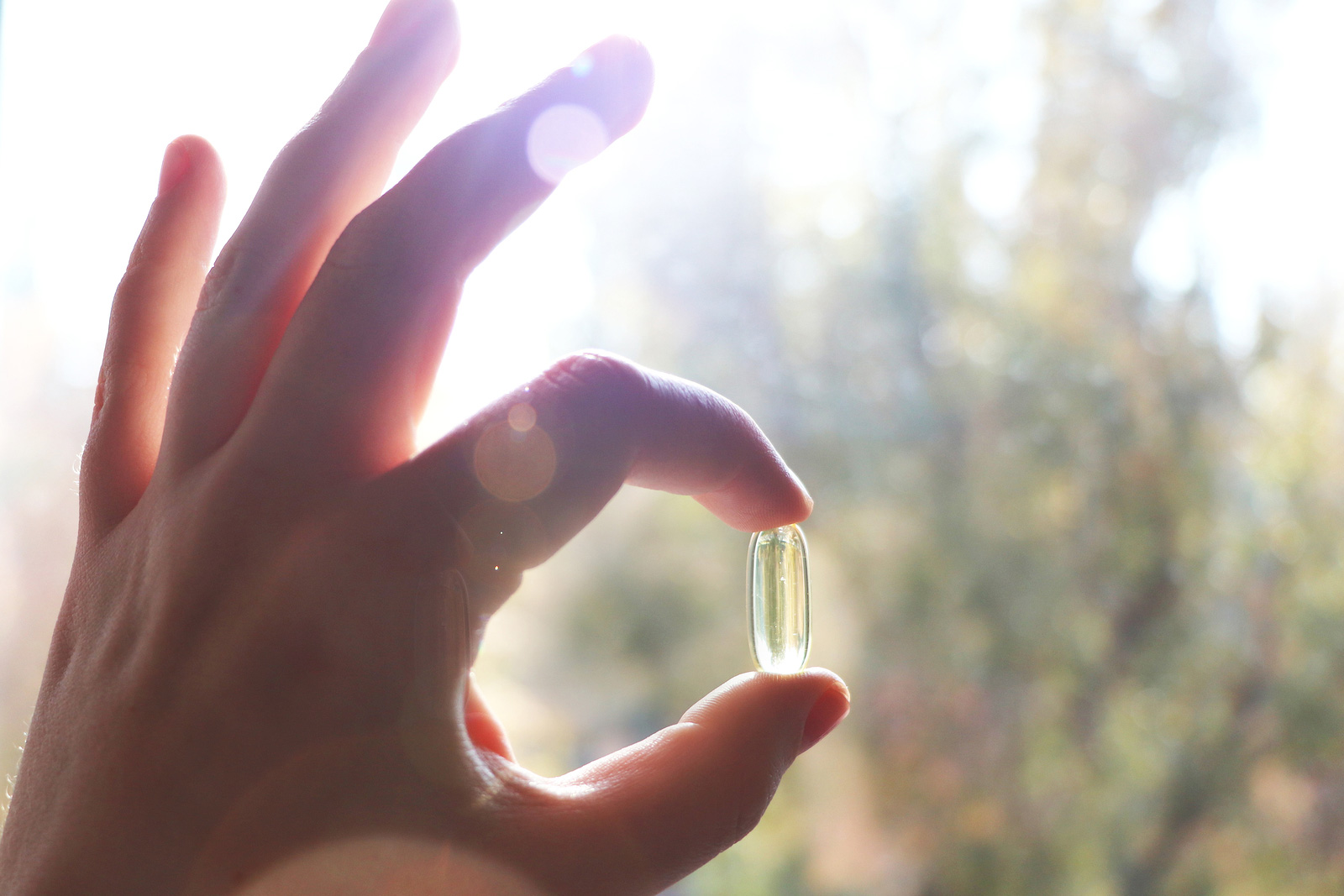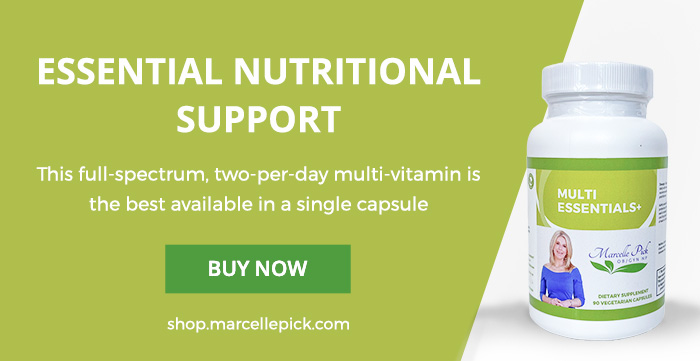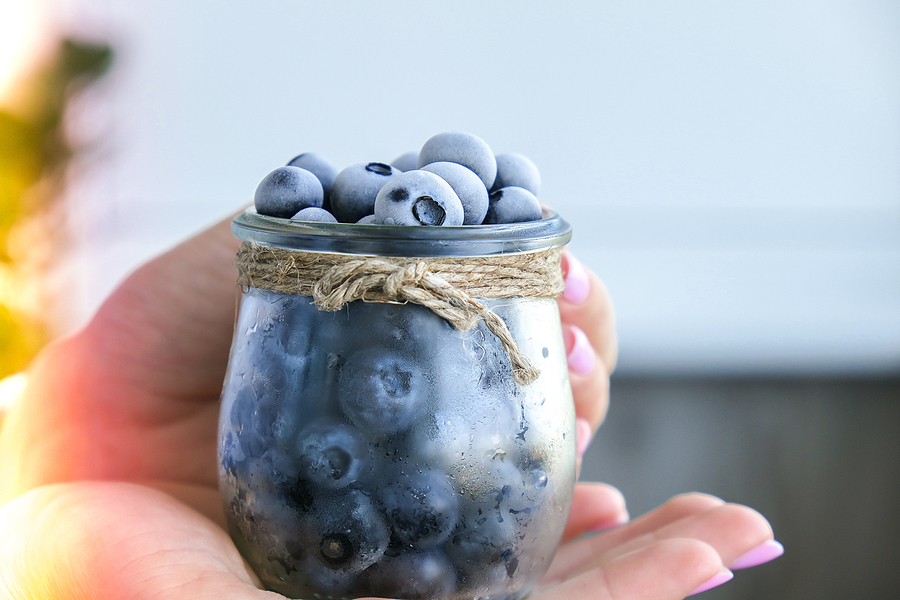Every so often a study comes out that calls into question the value of vitamin and mineral supplements. Every time it happens, the medical community buzzes with talk: Are vitamins really necessary? Or are they a waste of money? Isn’t a healthy lifestyle a better option?
I’m always frustrated when this conversation comes back around. Of course a healthy lifestyle – good nutrition, plenty of rest, avoiding bad habits, and getting regular physical activity – is the most important thing we can do for our health.
Vitamins aren’t a substitute, and they certainly aren’t magic. If you aren’t caring for your body properly, a daily vitamin isn’t going to keep you healthy. That’s not what they’re designed for!
Think about it this way: A house needs a strong foundation, and so does your body. Good nutrition, regular sleep, hydration, and physical activity are your body’s strong foundation. But a house also needs support beams to keep it standing. Vitamins are like support beams for your body!
Why People Are Talking About the Value of Vitamins Again
This conversation comes up again and again, especially when a new article is published or a new review study is conducted. Let’s take a look at some of the primary articles that have stirred the debate.
In 2013, an editorial in the journal Annals of Internal Medicine, written by researchers from Johns Hopkins, bluntly called vitamin and mineral supplements a waste of money. After a review of research, they concluded that supplements didn’t show that vitamins reduce the risk of specific conditions and chronic diseases, including cardiovascular disease, cancer, and cognitive decline.
They also cited some research that found that high doses of β-carotene, vitamin E, and possibly vitamin A supplements could increase risk of mortality. They even go as far to say that large scale research on the prevention value of vitamins, with the exception of Vitamin D, is no longer warranted.
More recently, headlines highlighted a Canadian study from May of 2018. A Newsweek article cited the study, in which the authors reviewed studies conducted between 2012 and 2017 and found no significant positive impact on risk of stroke, heart disease, heart attack or premature death. In that article, the lead author was quoted as saying that a healthy diet was the most beneficial way to get vitamins and nutrients.
I couldn’t agree more! I’ve long said that food is the best medicine we have available to us. The problem with these studies is the assumption that multivitamins replace good food. When used properly, as I said above, they support the healthy choices you’re already making.
Another issue I have with these authors dismissing the value of multivitamins is that the research is often looking at very specific conditions – like heart health, for instance. My view is that vitamins support overall health and hormonal balance.
Waste of Money or Sound Investment in Health?
The cost of vitamins always comes up in these conversations. Some say that you’re better off spending money on healthy foods than vitamins – and I don’t disagree! For me, it’s not an either or proposition.
If you’re eating frozen dinners and whoopie pies and skipping the fruits and vegetables, vitamins probably won’t do much to keep you healthy. But when you’re eating a nutritious diet filled with whole foods, a vitamin can help to fill the gaps.
That’s because it’s increasingly hard in our modern society to get all the nutrients you need from the food you eat – no matter how healthy it is. The sheer variety of fruits and vegetables you’d need to eat to get all the essential vitamins and minerals is overwhelming. Add to that the fact that you need to eat more of something to get the same nutritional value it used to carry decades ago, and you can see why it might be so difficult. Industrial farming practices and depleted soil mean that commercially produced food simply isn’t what it used to be.
And then there’s the issue of what’s in the food sometimes. Unless you’re eating all organic, it’s likely that you are ingesting some chemicals that can disrupt your hormones and leave you feeling lousy. A high quality multivitamin can help combat both the issue of fewer nutrients, and the endocrine disruptors you might inadvertently be consuming.
Quality Matters
That brings me to another point. If you’re picking up whatever vitamins are on the supermarket shelves, those experts that say they’re a waste of money might be right. Vitamins aren’t regulated the same way food is by the food and drug administration. That’s why it’s essential to find a reputable manufacturer who produces a product that’s been tested to be sure it contains what it says it does, namely a pharmaceutical name brand.
My multivitamin blend, for instance, is produced by a manufacturer who tests every single batch to be sure you’re getting exactly what you expect.
Vitamins – as Part of a Healthy Lifestyle – Do Matter
I am firm in my belief that a daily multivitamin is a crucial part of a healthy lifestyle for women. Every person is so unique that it’s impossible to know exactly how specific nutrient gaps will impact health for every woman. Supplements certainly should not replace a healthy diet filled with fresh produce, whole grains, and plenty of protein. But supporting your body by making sure it gets all the nutrients it needs just makes sense!
Resources:
https://www.newsweek.com/do-vitamin-mineral-pills-have-any-health-benefits-no-say-scientists-946491
https://www.ahajournals.org/doi/full/10.1161/CIRCOUTCOMES.118.004886








